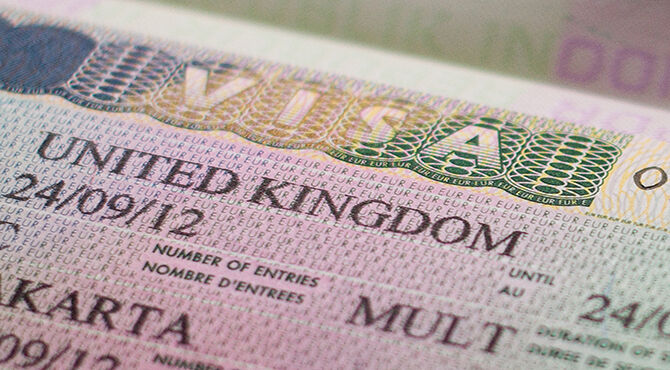Firms unprepared for new visa system - CIPD
Employers in the UK are facing a "painful adjustment" to the new immigration system due to be introduced at year's end, according to a report from the Chartered Institute of Personnel and Development (CIPD).

 7 July 2020
7 July 2020Related articles:
- Immigration changes could thwart UK recovery
- 'Office for talent' created to lure skills to UK
- Create 'digital age' immigration system, says CBI
Mr Davies added that there were a number of ways government policy could better support employers. He suggested the introduction of umbrella sponsors to allow third parties, such as membership bodies, to sponsor overseas workers.He said that such an arrangement would be economical from an administrative and cost perspective, and would appeal especially to low-volume users of the system. "The other obvious route to help fill recruitment gaps would be to encourage greater investment in skills in the domestic workforce," he said."To do this, the government must invest more in further education and lifelong learning, broaden the apprenticeship levy to make it more flexible to cover other forms of accredited training and provide enhanced business support on people management and training for small firms delivered at a local level."These changes can both help employers adjust to the new system and help support efforts to improve the UK’s productivity, which remains our biggest economic challenge."
Read more news and views from David Sapsted.
Subscribe to Relocate Extra, our monthly newsletter, to get all the latest international assignments and global mobility news.Relocate’s new Global Mobility Toolkit provides free information, practical advice and support for HR, global mobility managers and global teams operating overseas. Access hundreds of global services and suppliers in our Online Directory
Access hundreds of global services and suppliers in our Online Directory
©2026 Re:locate magazine, published by Profile Locations, Spray Hill, Hastings Road, Lamberhurst, Kent TN3 8JB. All rights reserved. This publication (or any part thereof) may not be reproduced in any form without the prior written permission of Profile Locations. Profile Locations accepts no liability for the accuracy of the contents or any opinions expressed herein.






























